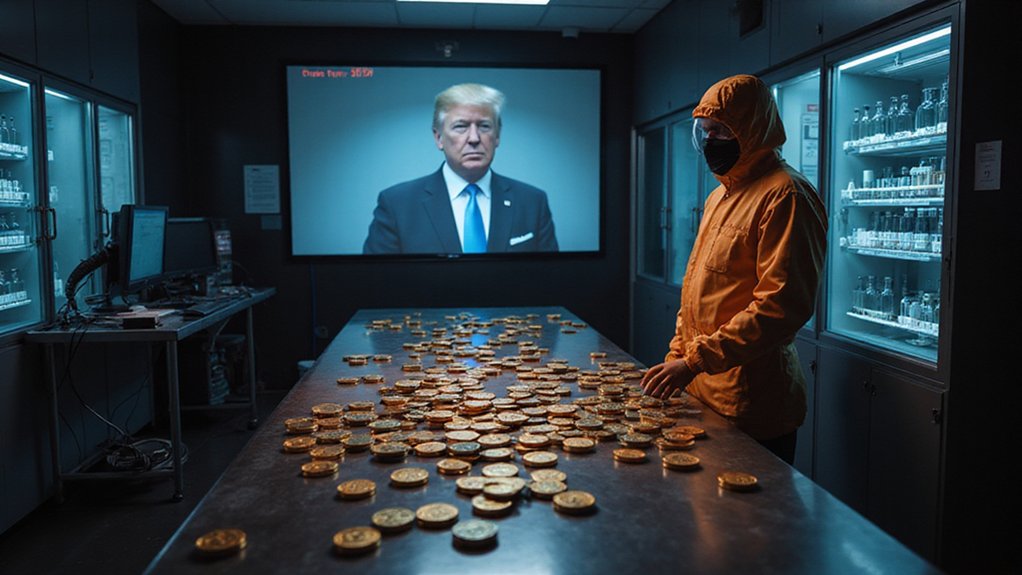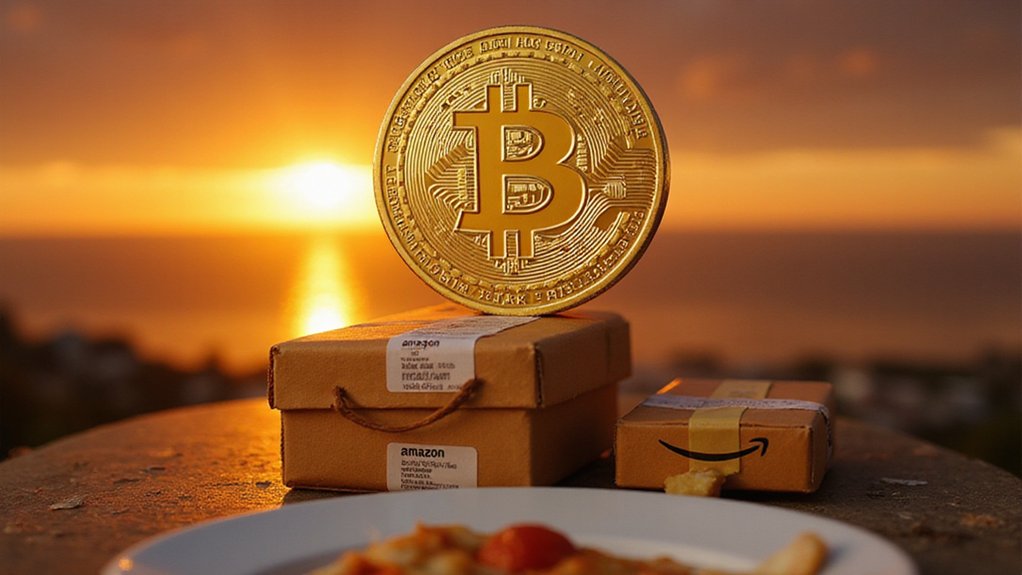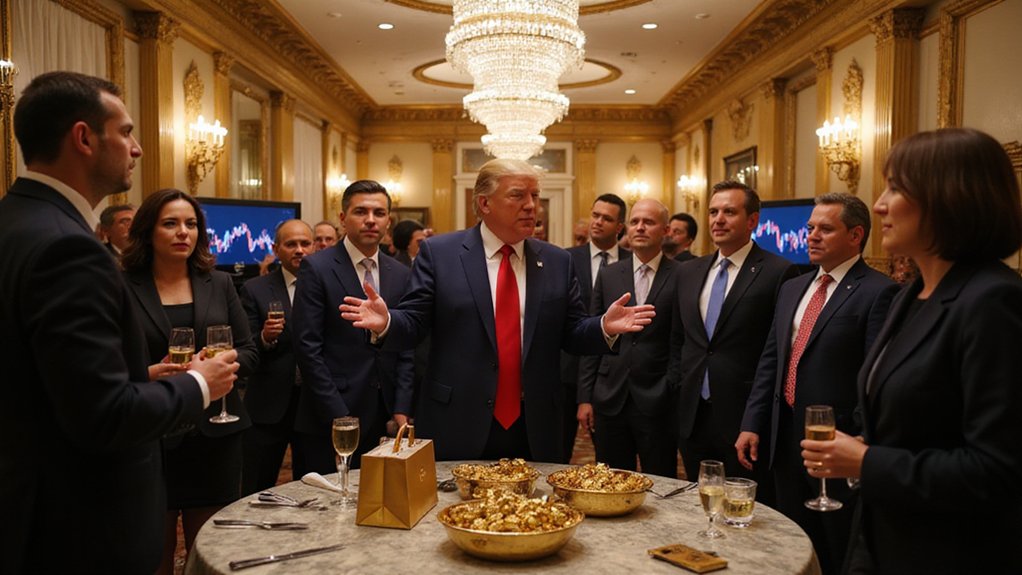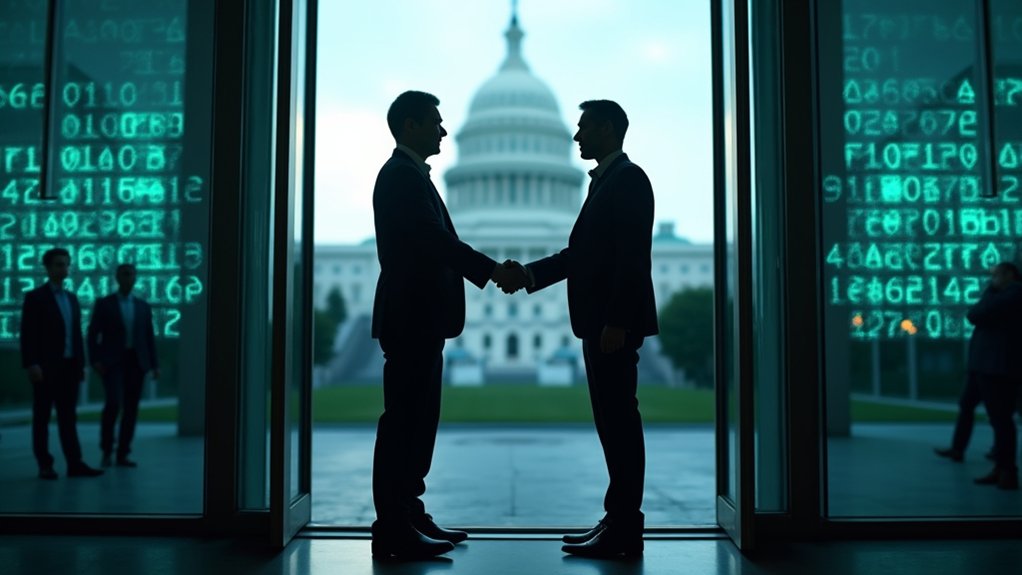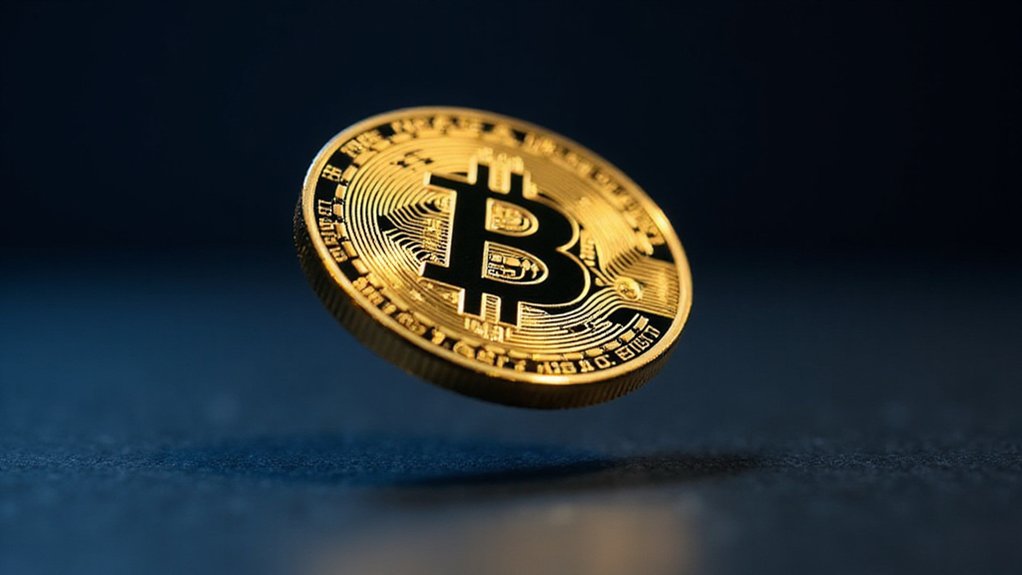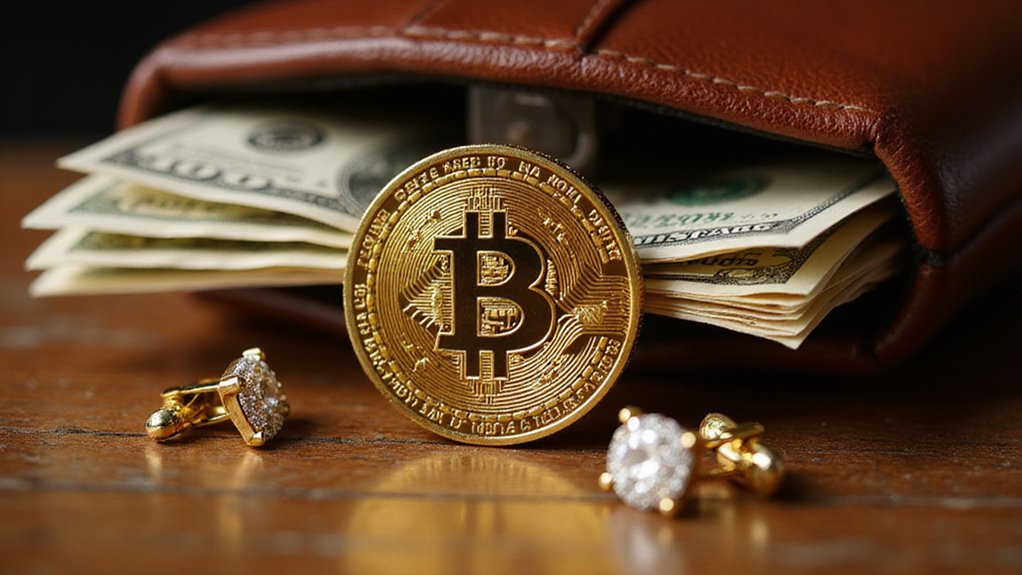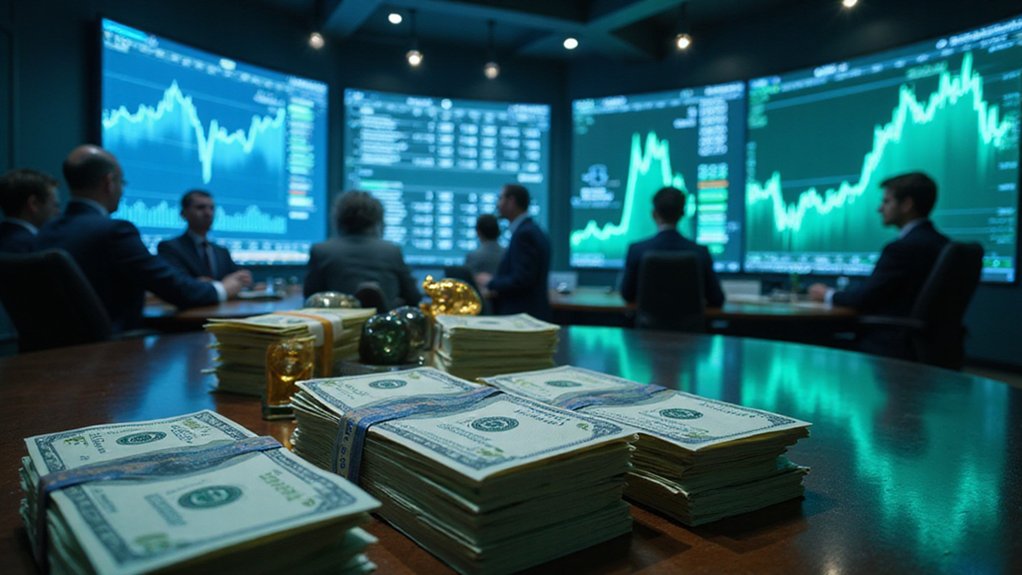How quickly the tides of cryptocurrency regulation can turn when presidential power intersects with digital asset ambitions. President Trump’s January 23rd Executive Order has fundamentally altered the American crypto landscape, establishing both a Strategic Bitcoin Reserve and appointing venture capitalist David Sacks as the administration’s “crypto czar.” This policy pivot—a stark departure from previous regulatory frameworks—has catalyzed substantial market optimism, with digital asset valuations surging in response to the newfound governmental imprimatur.
The Working Group on digital assets, comprising officials from key regulatory bodies including the SEC and CFTC, appears poised to usher in an era of coordinated (and presumably lenient) oversight—evidenced by the immediate suspension of enforcement actions against industry giants Binance and Coinbase. The suspension particularly benefits Binance, which offers leverage up to 125x on certain futures contracts, a feature that has drawn regulatory scrutiny in the past. Yet questions abound regarding the practicality and security vulnerabilities inherent in a government-maintained cryptocurrency reserve. The reserve will be primarily capitalized using bitcoin obtained through Treasury-owned forfeiture proceedings, ensuring no additional burden on taxpayers. The Executive Order specifically directs the working group to submit a comprehensive regulatory framework report within 180 days of its formation.
Perhaps more troubling is the administration’s entanglement with the $TRUMP token, launched mere days before the Executive Order. The token’s management structure—with 80% held by entities connected to the Trump Organization—presents textbook conflict-of-interest scenarios that would make even the most laissez-faire ethicist raise an eyebrow. While most investors have watched their holdings depreciate, the $324 million in transaction fees has flowed to companies with apparent Trump connections.
The $TRUMP token saga epitomizes how presidential influence can transform personal business interests into regulatory goldmines at investors’ expense.
Foreign investment patterns raise additional concerns. GD Culture Group, a China-linked entity, reportedly acquired $300 million in $TRUMP tokens concurrent with pending TikTok regulatory decisions—a coincidence that strains credulity and suggests potential quid pro quo arrangements.
The blurred lines between presidential authority and personal financial interests manifest most egregiously in promotional events like the exclusive dinner reserved for top token holders, which temporarily inflated $TRUMP valuations. Such machinations exemplify the hazards of presidential imprimatur being leveraged for private gain. As the administration prepares for its White House crypto summit, the cryptocurrency community finds itself traversing uncharted waters where regulatory clarity competes with questions of ethical governance.
